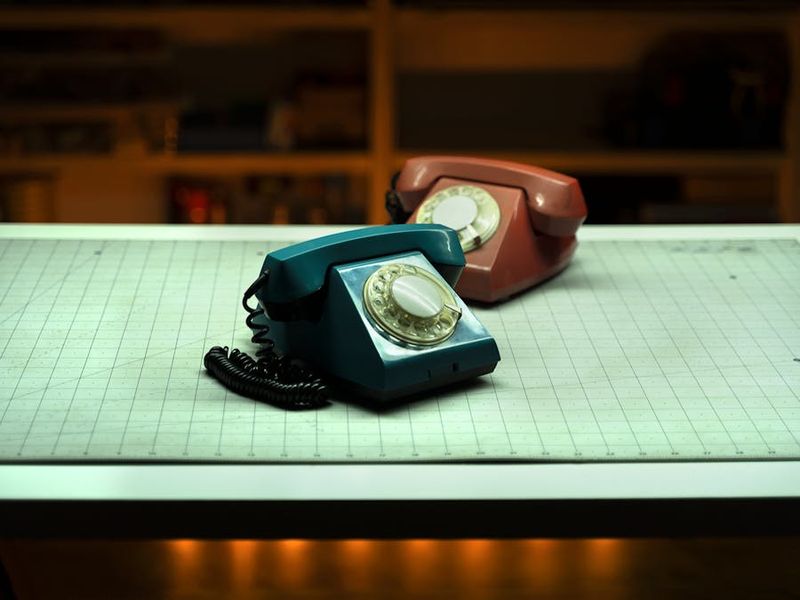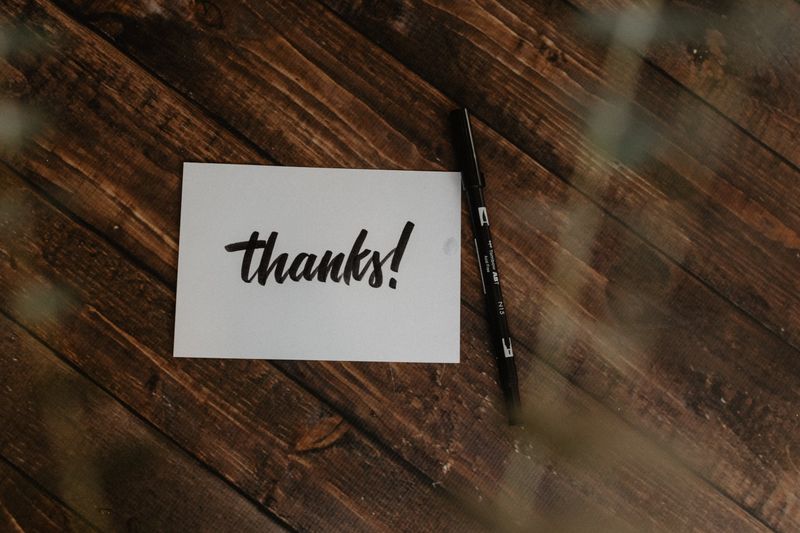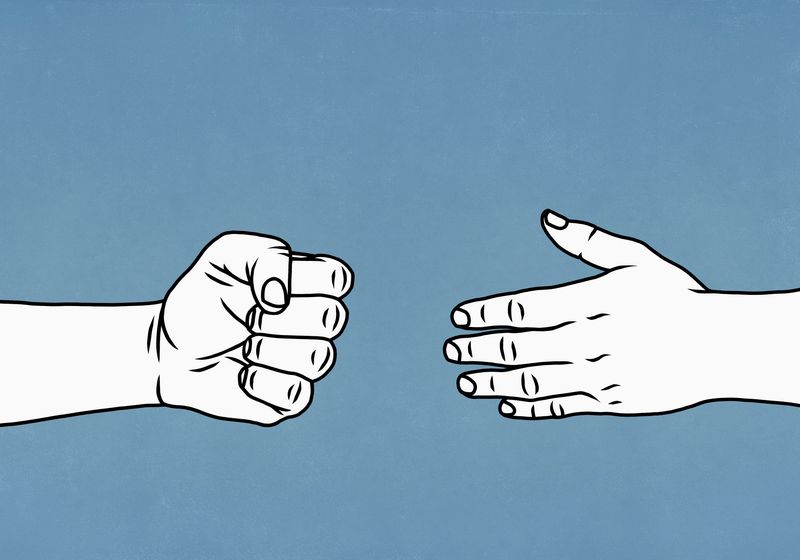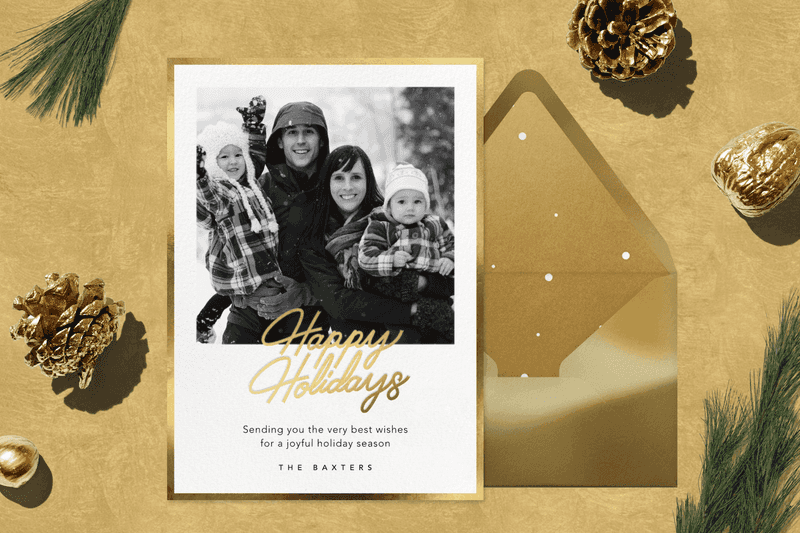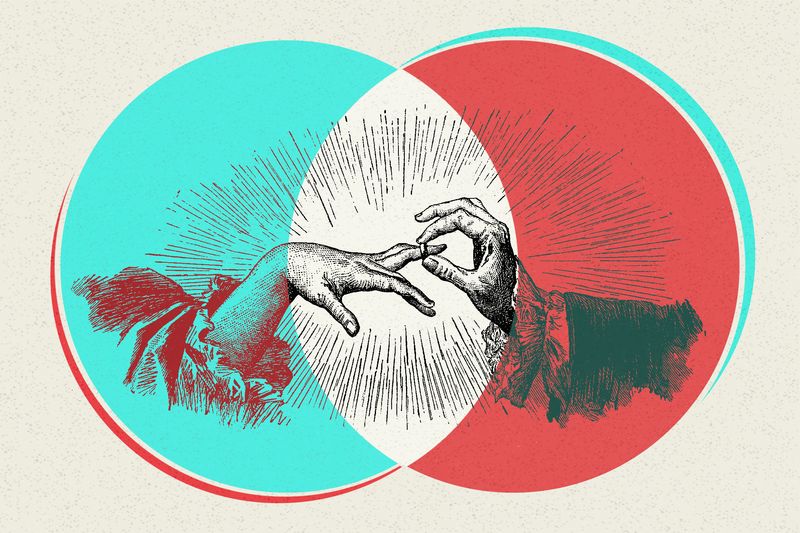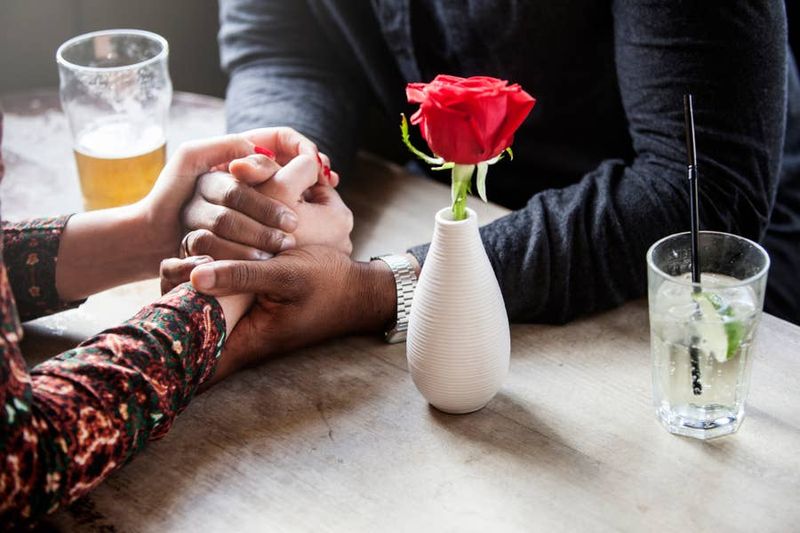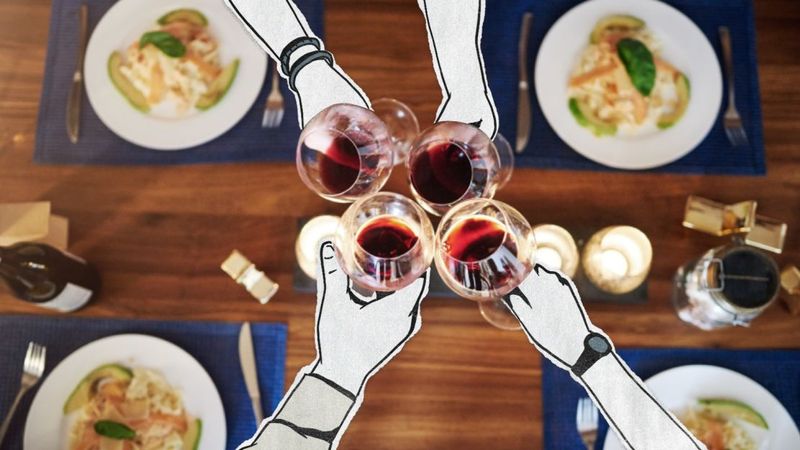Do you ever look back and wonder how we all just… agreed to certain things? Like standing up every time your boss walked in, or feeling guilty if you didn’t send grandma a handwritten thank-you note for those socks you never wore?
If you’ve ever caught yourself ignoring a rule you once followed out of habit (or just plain fear of looking rude), you’re not alone. There are plenty of us on board with you, just keep reading.
Turns out, the unwritten rulebook is looking mighty thin these days—and honestly, tearing out those pages feels pretty liberating. Here are 17 social norms that we’ve collectively kicked to the curb—and why that’s worth celebrating.
1. Strict Dress Codes at Work
Remember when business casual meant khakis and a polo, and business formal meant suffocating in a tie, even if your entire job was answering emails? I used to sweat through my blazer just walking from my car to the office. These days, I consider it a win if I wear pants without an elastic waistband on Zoom calls.
Trading in suits for sweatshirts has made work feel more human. I get to focus on the actual job instead of worrying about whether my shoes are “too fun” for finance. Plus, I can finally own up to the fact that I have literally zero interest in ironing.
If you do enjoy a sharp outfit, more power to you. But most of us just want to breathe, move, and look like ourselves while doing our jobs. There’s something freeing about not feeling like a fraud in costume every weekday. Turns out, authenticity is always in style.
2. Always Answering the Landline
Once upon a time, the home phone was a sacred lifeline. If it rang, you answered—no matter if you were elbows-deep in pizza dough or mid-argument with your sibling. I remember sprinting across the house like it was the Olympic finals, only to find out it was another telemarketer or, worse, my dentist’s office.
Now, the only landline most of us hear is in nostalgic movies or our grandparents’ homes. It feels oddly satisfying to let calls go to voicemail, or, let’s be honest, to just mute unknown numbers completely. The anxiety-inducing “ring and run” is one tradition I’m happy to leave in the past.
There’s a weird freedom in not having to jump for a ringing phone. If the message is important, someone will text, email, or send a carrier pigeon. My thumb is definitely in better shape for it.
3. Handwritten Thank-You Notes
Hand cramps, anyone? I used to fret over every line in a thank-you card, terrified my penmanship would be judged more than my actual gratitude. There was a pressure to find just the right words (and, let’s be real, to spell “sincerely” correctly without looking it up).
Now, a quick text, meme, or voice note feels just as sincere—and a lot less stressful. Not to mention, it saves on postage and gives the environment a well-deserved break. My thumbs may be overworked, but at least I’m not burning through stationery.
Some still love the art of snail mail, and that’s lovely. But for many of us, gratitude is best delivered in seconds, not days. Who knew appreciation could be so efficient—and typo-friendly?
4. Not Discussing Money
Once, money talk was right up there with politics and religion—a definite no-go. Growing up, I felt like asking about someone’s salary was worse than asking about their love life. The silence did more harm than good, leaving us to figure out finances in the dark (or Google).
Now, there’s power in sharing. Comparing rent, discussing raises, or swapping budgeting tips has helped me feel less alone and way more empowered. Sometimes, the biggest relief is realizing everyone else is just as confused about taxes as you.
Opening up about money isn’t just practical, it’s liberating. Shame doesn’t thrive in sunlight, and neither does financial ignorance. Turns out, we’re all just trying our best not to accidentally invent a new form of debt.
5. Standing Up When Someone Enters the Room
There was a time when you’d spring out of your chair if anyone older or “more important” walked in. I can still picture my parents shooting me a look if I so much as hesitated. It always felt like musical chairs, but with more anxiety and fewer prizes.
Nowadays, respect looks a little different. A friendly wave, a warm smile, maybe a “hey”—that’s the new currency. No need to interrupt your entire Netflix marathon to prove you’re polite.
It’s honestly a relief. We’re all about comfort and connection now, not performative rituals. If someone wants a seat, I’ll scoot over. Otherwise, the couch is big enough for everyone’s dignity (and snacks).
6. Always Using Titles and Last Names
“Ms. Smith, may I use the restroom?” That formality followed me everywhere, like a polite ghost. It always put a wall between people—especially if the title was “Doctor” or “Sir.”
Agora, there’s a comfortable informality in first names—even with bosses, teachers, and sometimes, parents (with permission). It’s not about disrespect; it’s about feeling human together. It makes conversations less like an interview and more like an actual exchange.
Honestly, it’s easier on the memory, too. No more panicked moments trying to recall if it’s Mr. or Dr. or Judge. Just real people, talking like real people. What a concept.
7. Bringing a Dish to Every Social Gathering
Potlucks used to mean juggling hot casseroles in the car and apologizing for grocery store cookies. The unspoken rule was: never show up empty-handed, even if you weren’t sure what anyone actually needed.
These days, hosts are more likely to say, “Just bring yourself!”—and they really mean it. I’ve shown up with nothing but a smile and still left with leftovers and stories. Nobody’s judging your cooking skills or lack thereof, I promise.
It’s honestly easier for everyone. No more culinary anxiety or competitive baking. Half the time, the party is about the people, not the potluck. Plus, who wants to carry home a half-eaten trifle?
8. Shaking Hands as a Standard Greeting
There was a time when a handshake was the gold standard—a universal code for “I see you.” I always wondered if I was squeezing too hard or not enough, or if I should sanitize immediately after. Then a global pandemic came along and handed us all an excuse to bow out—literally.
Now, fist bumps, elbow taps, or even a well-timed nod get the point across. I never thought I’d be nostalgic for my awkward grip, but honestly, my germaphobe side is thriving. Turns out, connection doesn’t require palm-to-palm contact.
Greeting rituals are more creative and, dare I say, more fun. Plus, avoiding the clammy handshake lottery is a win for everyone. Here’s to new ways of saying “hello”—without hand sanitizer on standby.
9. Not Discussing Politics or Religion
Growing up, I was told never to bring up politics or religion at the dinner table. I took it as gospel, terrified I’d spark a feud over the mashed potatoes. Silence felt safer, but also a little lonely—like editing out a big part of myself.
Now, these conversations happen over brunch, coffee, or group chats. It’s not about changing minds; it’s about understanding where we all stand. Sometimes it gets heated, but it’s rarely boring—and almost always enlightening.
Sure, disagreements happen, but avoiding the hard stuff doesn’t make it go away. I’ve learned more about myself and my friends by wading into these “danger zones.” Turns out, vulnerability is way more interesting than playing it safe.
10. Sending Holiday Cards by Mail
Once upon a December, my family would spend hours addressing holiday cards, licking envelopes, and checking off a list that seemed to get longer every year. I always dreaded the hand cramps—and the guilt if I forgot someone.
Now, it’s all about digital cheer. A group selfie, a funny meme, or an e-card reaches the same people, minus the paper cuts and postage panic. The only thing I miss is the excuse to buy glittery pens.
Some traditions fade, but the intention stays. I still want loved ones to feel remembered—it’s just a lot faster (and kinder to trees). If you ever get a texted snowman from me, know it comes with the same love—and way fewer envelope mishaps.
11. Offering Your Seat to a Woman
I used to watch movies where a man would instantly leap up to offer his seat to a woman—like it was a test of chivalry. I tried it once and got a polite, “Thanks, I’m good.” The awkward linger that followed convinced me it was time for new rules.
Now, the seat offer is about who needs it, not who fits a stereotype. Pregnant, tired, elderly, or just in need—gender aside, it’s about empathy. We all take turns being the one who could use a break.
Respect isn’t a performance. It’s being aware, thoughtful, and flexible. Turns out, the best seat is the one you offer because it matters, not because you’re expected to.
12. Asking for Permission to Marry
The whole “asking permission” tradition always felt like a leftover from a different century. I used to imagine my future partner standing nervously in front of my dad, as if love needed a stamp of approval. It never quite fit my own story.
Hoje, proposals are more about the couple and less about anyone else’s blessing. We make choices together, talk about our futures, and decide what feels right for us. No awkward parental interviews required.
It’s refreshing to celebrate relationships as partnerships, not transactions. Love should be about mutual respect, not a ceremonial handshake. If you’re happy, that’s the real sign of approval.
13. Using Formal Language in Emails
There was a time my emails read like legal contracts: “Dear Sir or Madam, I hope this message finds you well.” I agonized over every comma and signature, terrified of sounding too casual. The formality felt forced—especially when the reply was a one-word “thanks.”
Now, I write the way I talk (minus the memes, usually). Email is another conversation, not a test of etiquette. I get to connect, not just communicate—and I save hours not worrying if my closing was “warm regards” or “best.”
Professional doesn’t mean robotic. It means being clear, kind, and (occasionally) using emojis for context. Turns out, the world keeps spinning—even if you forget the “To Whom It May Concern.”
14. Bringing Flowers on a First Date
I used to believe that the key to a good first date was a bouquet—and a lot of nerves. It always felt like a scene from an old rom-com, right down to the awkward handoff (where do you put them, anyway?). The gesture was sweet, but a little forced for my taste.
These days, first dates are more about chemistry than ceremony. I’d rather share stories, jokes, and maybe a pastry—no petals required. The best connections happen over conversation, not carnations.
Romance doesn’t have to be scripted. Sometimes, authenticity is the most attractive thing in the room. If flowers do show up, it’s a bonus, not a rule. And honestly, there’s less pollen to worry about.
15. Always Sitting Down to Eat
Family dinners used to be sacred—everyone at the table, napkins in laps, elbows banished. I remember fidgeting through endless meals, just waiting to be excused. The pressure to keep up polite small talk was real.
Now, meals are as flexible as our schedules. Sometimes it’s takeout in front of the TV, lunch at the desk, or breakfast on the go. It’s not about the setting, it’s about finding a little comfort in chaos.
Eating together is still special, but so is honoring your own rhythm. There’s freedom in ditching the table rules—especially if it means you don’t have to hide that you like ketchup on everything. Bon appétit, wherever you are.
16. Calling Instead of Texting
I used to feel guilty if I didn’t call people back right away. The phone would ring and I’d freeze, trying to rehearse my hello before picking up. Calls always felt like a pop quiz—”Are you free to talk? Right now? Forever?”
Texting changed everything. Now, I can collect my thoughts, respond on my own time, and skip the awkward pauses. Plus, those little blue bubbles don’t judge my “ums” and “uhs.”
It’s not about being distant—it’s about having boundaries. If something’s urgent, I’ll call. But for most things, a quick text is the perfect balance of thoughtful and efficient. My introvert heart is grateful every day.
17. Sunday Best
Wearing “Sunday best” used to mean carefully choosing your most uncomfortable clothes for a few hours of sitting and standing. I was always tugging at collars, wishing for sneakers instead of shiny shoes. The dress code felt more like a test than a celebration.
Now, comfort wins. Church, brunch, or family events—jeans and t-shirts are fair game, and nobody bats an eye. The focus is on showing up, not showing off.
Dressing up is still fun, but it’s a choice, not a mandate. If you see me in sneakers in the pew, just know I’m here for the community, not the catwalk. Faith, friendships, and self-expression fit in any outfit.



